Creating Luxury Experiences: Chris Adams

Chris Adams, of Ellis Adams Group, is a man who cares so much about people’s hearts and wellbeing, he may even care more than your cardiologist. His precise attention to details is that of a surgeon. Chris Adams is a visionary with a heart of gold who puts his passion for people into curating one-of-a-kind experiences across the globe.
From his modest beginnings to a life of lavish luxury, Chris Adams is humble and genuine through and through. His knowledge of the industry is vast, and his zeal for hospitality permeates the room.
While much of his life may take place flying high above the ground, Chris Adams is as grounded and centered as can be. With over twenty years in the hospitality industry, his keen perspectives and insight make him a true disruptor in the billion dollar hospitality industry.
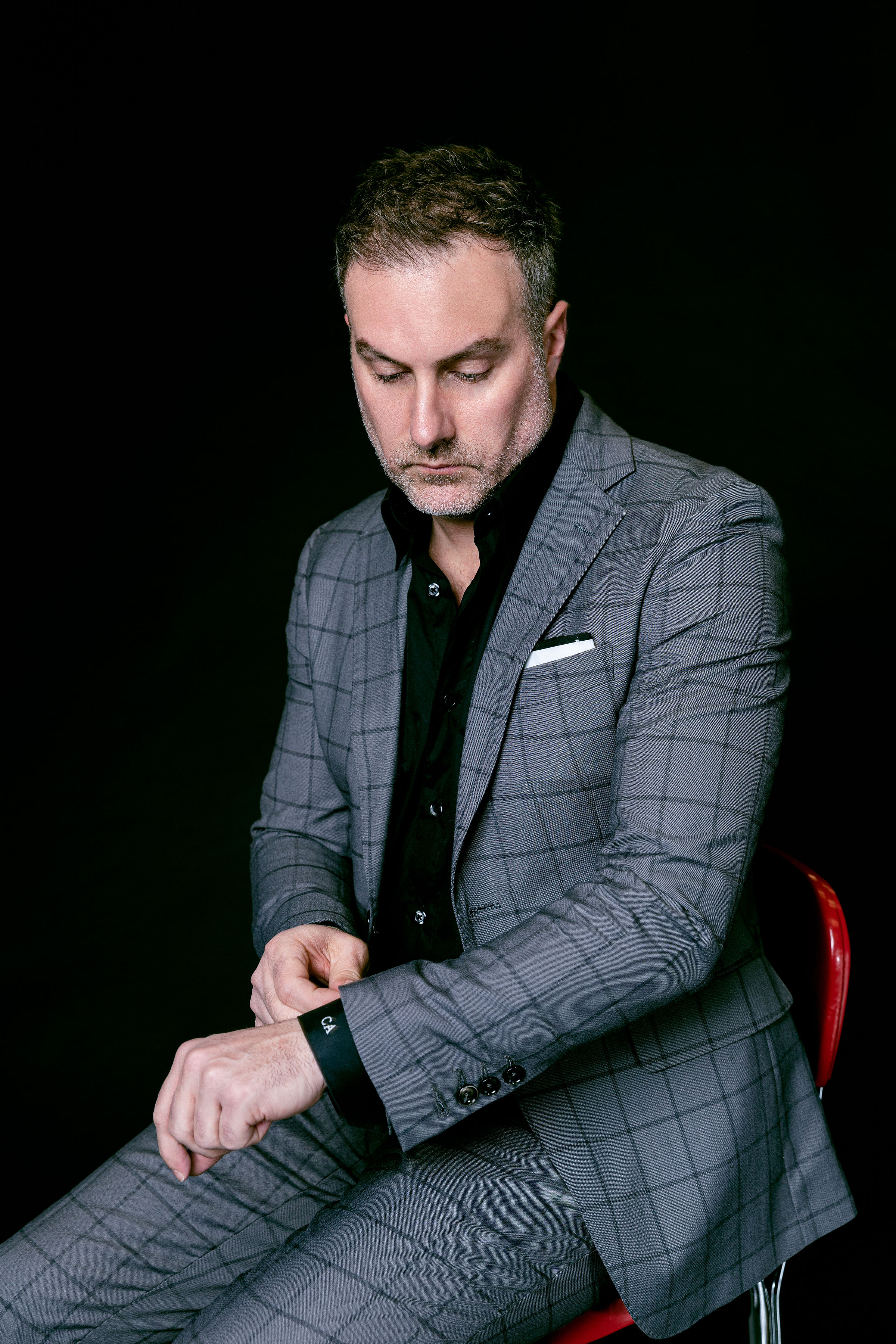
Romina Martinez: What was your earliest memory of the hospitality industry? Was it a specific restaurant or hotel that really stood out to you as a child?
Chris Adams: Crazy enough, I realized after I got into the hospitality industry that I was being prepped for it my entire life. My grandparents had a four bedroom house, and there isn’t a time that I can remember from the time I started having memories that there wasn’t someone living at the house that I didn’t know. And ultimately they became “Uncle So-and-So” or “Aunt So-and-So,” and those were individuals that were down on their luck, in between jobs, and my grandparents were the ultimate ‘take you in and help you get back on your feet’ individuals up until the time that they passed away.
I now look back on that and realize why hospitality was so natural for me. It was because my entire life, all I knew was to open your door and help people. So if I look back that would be my first real memory of hospitality, and understanding what true hospitality was supposed to be.
I think as I got older and started my career at the Ritz-Carlton hotels, Ritz-Carlton to this day has a special place in my heart. The brand, what it means, what it stands for, the heart of the culture, and what the brand is, is something very special when executed, and it was a very easy transition for me to embrace that culture and make it come to life.
RM: So ultimately it was your grandparents who helped form your interest towards a career in hospitality?
CA: Unknowingly, yes. I didn’t grow up in a house that was in hospitality so to speak. We didn’t have restaurants. I wasn’t a bartender in college, yet I look back now being in the hospitality industry and realize that I was surrounded by it. What they did every day. If you showed up at my house at 2 o’clock in the morning, I guarantee my grandmother was going to make you something to eat. That became very normal for me, and I assumed that’s how everyone was. And as you get older you realize that it’s not the case, and that’s a very special thing.
To be in this industry, you have to have a heart for people. If you honest to God don’t have a heart for people and don’t care about taking care of others, it doesn’t make you a bad person, it’s just not a good fit. You’re not cast in the right movie when you come into this industry.
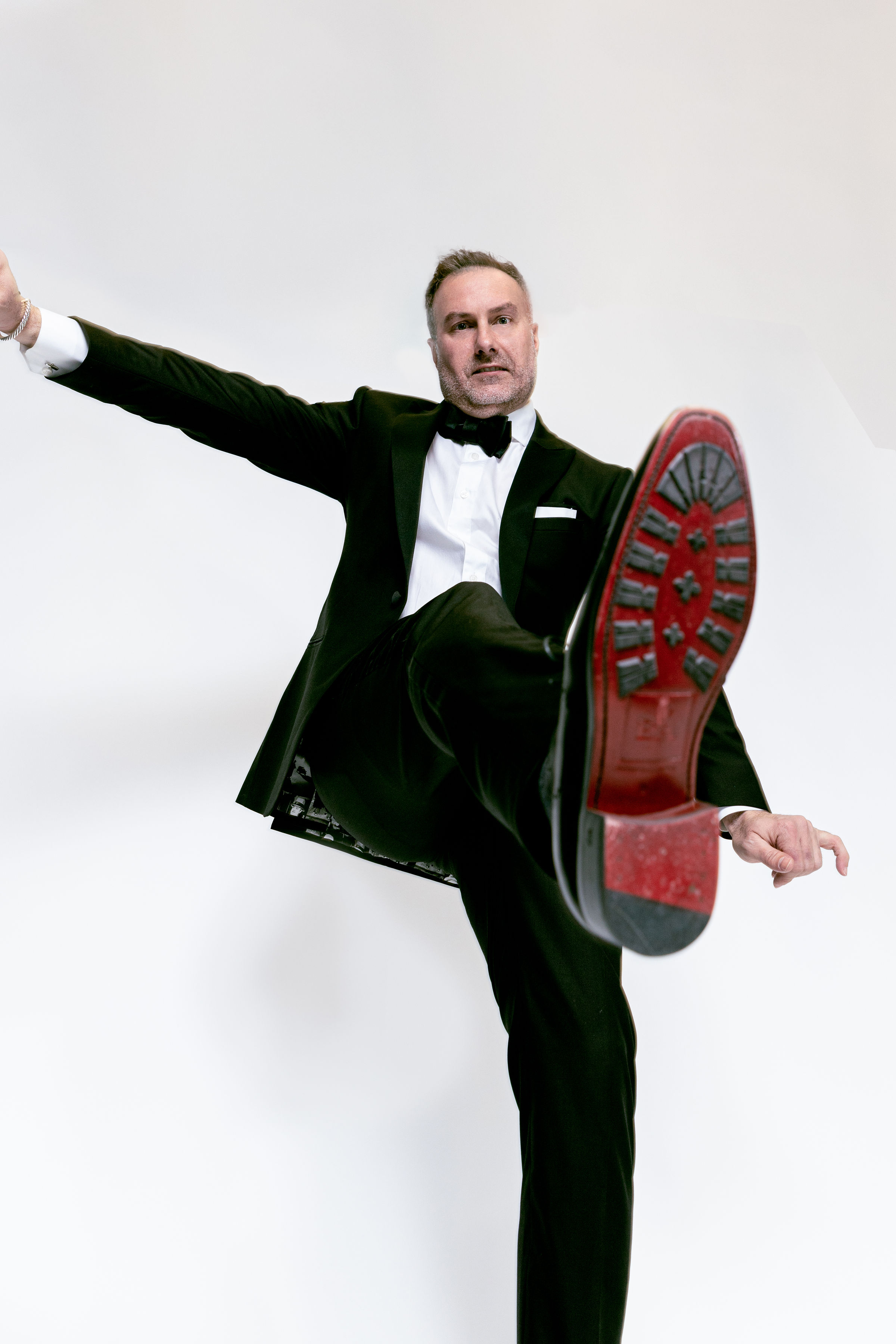
RM: What does it mean to be a Lifestyle Consultant, and what is a typical day like at the Ellis Adams Group?
CA: The term “lifestyle” is so vague, and gets thrown around a lot. It’s like the term “luxury.” It’s a broad scope of what everyone interprets it to be. For me, lifestyle is whatever comes natural for you. When you think about “lifestyle,” most people think “trendy,” or what’s super cool or relevant at this moment. And that is the interpretation most people assume when you say lifestyle, but the reality for me is whether we are working with a select service hotel like a Marriott Courtyard, or a Spring Hills Suite, you think about those brands and you wouldn’t say that’s a lifestyle brand because you think lifestyle and you think the W. For me, it means what’s relevant for your lifestyle and what matters to you. And then how do we make sure that we are crafting an experience that meets you where you’re at, whatever that lifestyle is. Just because you don’t wear LuLu Lemon doesn’t mean that you don’t have a lifestyle. So for us at EAG, no matter what project we’re working on, it’s making sure we’re in touch with who the target demographic is, who is the individual that’s going to be visiting that space, and making sure that we’re creating and curating experiences for them. Not for us. Not for what you might like. It’s making sure that it’s focused on that person.
A typical day at Ellis Adams Group is usually in the air. Last year we spent 300,000 miles in the air with Delta. So it’s usually on a plane or in a Sky Club somewhere for the most part. A lot of calls. We have clients across the globe and everyone is one their own time zone, so, as a result, I don’t get to have a time zone. I’m on everybody else’s time zone. And then for me, it’s also spending as much time as I can to black out my calendar to get in the right frame of mind to create. I think our clients love that we come to the table with something different. What we offer them from a design perspective is different. We think differently than probably a lot of the other a-typical designers do. It’s our responsibility to make sure we stay in the right frame of mind to be able to deliver that to them. So not getting bogged down in the whirlwind of emails and phone calls all day, and really setting aside time to focus on what’s important, what matters, and what’s going to get our clients good results.
What would you say are the best and worst things about being a lifestyle consultant?
The best thing is that I have the best job in the world. I get to travel the world, stay at amazing hotels, eat at the best restaurants, drink at the best bars. I mean, it’s literally the best gig, and then somebody pays me to do it. I don’t know how I landed this, but it’s a dream. I get to do something I love every single day.
The worst thing is you get pulled in so many different directions. And when you have a growing brand, the growth process is never easy. Even thinking as a child growing up, it can be painful. So when you grow a brand, there are moments that are painful. That process of do you hire more people for the business because you know you need more people, but do you really have the revenue to sustain it? Versus book the business, but we don’t actually have the people to execute. I think the worst part of being a lifestyle consultant is the fact that you have to make sure you always find a way to support your clients throughout that growth process.
But again, that’s also the best part knowing we have so many clients across the globe who are growing, and who are thriving. It’s all about making sure we meet the client where they are, and never try to push an agenda of what we think it should be. We give our recommendations and we try to direct them in the right way, but it’s important for us to know where they’re at and what’s their end goal. Where do they want to be in five years with their concept?
I use a question all the time at the beginning of every project which is, “I need to know in two years, what needs to happen, and what do we need to do for you for us to be somewhere popping bottles of champagne together?” If I know exactly what that is for you, then it’s a lot easier for me to execute.
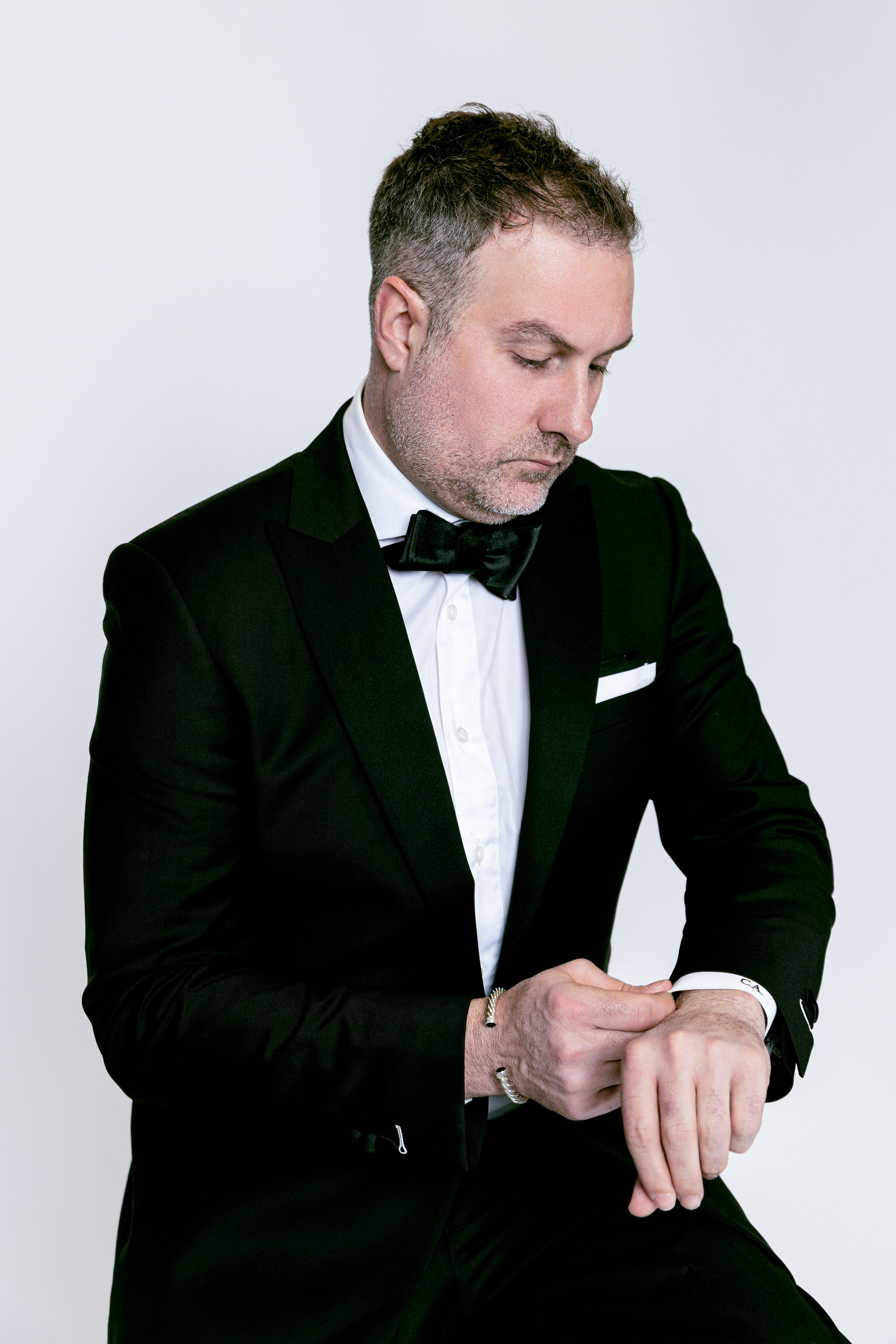
Can you tell us what it was like climbing the ladder from pool boy attendant to where you are at today, transforming monumental hotels such as the Cosmopolitan in Vegas or the Ritz-Carltons around the world?
It was a ton of work. It was a hundred hour plus work weeks. And I can tell you the most important thing along the way was the failures. That’s probably what most people don’t want to talk about because everyone wants to talk about the success, the lifestyle, the cars, and those things, but let’s talk about the process of what it takes to get to that space. I think if you don’t truly go through the process and fail along the way, which means you’re taking risks and pushing the envelope, doing things outside the norm, it’s very difficult to go from the entrepreneurial mindset of where you are now to where you want to be.
It’s easy for people to say they want to be a consultant, or own a firm, or be the leader in any specific industry. I want it to blow up and be great. That’s cool and an awesome goal to have, but let’s talk about the process of what you’re going to have to go through to get there. The sleepless nights. The times when there’s no money to make payroll. The times when you thought you had a deal, and the deal goes sideways. All those things, that’s real life. The process of embracing failure is humbling, and you have to learn to accept it.
The biggest thing that helped me along the way is learning how to change my perception of things. How you view where you’re at determines your next move. The choices you make today will determine your tomorrow. Once I figured that out, it was a game-changer on my ability to have zero fear and be completely fine with failing. Have the ability to learn from it, and pick yourself back up.
What advice would you give to someone just breaking into the hospitality industry?
Be patient. If you’re getting into hospitality right now, it’s a great time. We have major labor shortages which means that you’re putting yourself in supply and demand. If you come into our industry right now and perform, you have a very good chance of going up in the ladder quickly versus five or six years ago where we had a saturated market. Right now it is not as difficult to move up if you can get in and perform. You’re going to get shot much faster than you would have a decade ago. So that’s exciting for someone who’s coming into the industry. Just be patient. Learn. Listen.
I have a lot of individuals who come into the industry and, for whatever reason, they know everything. They have it figured out. They don’t like help. Help has become this thing where it’s an insecurity. To ask for help somehow makes you feel inferior. It means that you’re not doing your job well enough because someone had to help you. And I always say that’s crazy to me because if I was building a house and somebody told me they were a master tile-layer and noticed my tiles needed some work and offered to help me out, who wouldn’t say yes? I’d say, “Yes, please!” But you have someone show up to a bar, a restaurant, a hotel and say, “Hey, I want to help you.”They’ll almost always say they don’t need your help. And that’s typically from some form of insecurity that they might not be as prepared for their job as someone else, and they don’t want someone coming in and making it look like they don’t know what they’re doing.
So when I look at these young leaders coming in, or these individuals coming into the hospitality industry, I say learn, listen, embrace. Learn the good, the bad, and the ugly from every person and interaction that you come in contact with because that is laying the foundation for where you’re supposed to be. And never try to rush that process. You’re going to end up where you’re supposed to be whether you like it or not. That’s just the way life works. Make sure you embrace those interactions, and work hard. Be patient, and don’t rush the process.
I look back, and I’ve been in this industry over twenty years, and it feels like I’ve been in it for three. I never thought twenty years ago that I’d be doing this, and be able to accomplish what our teams have been able to accomplish. So enjoy the journey of what it is.
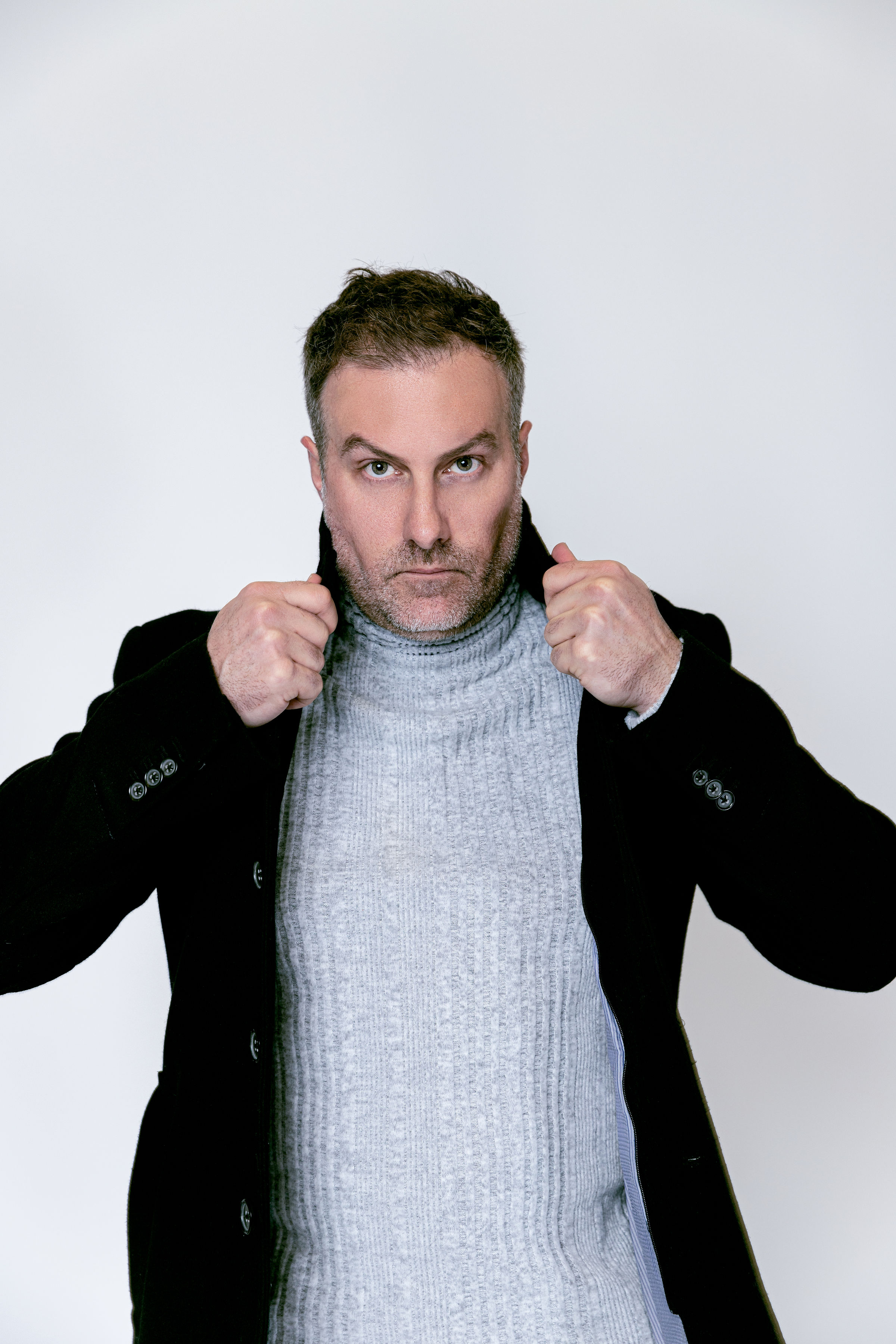
What are the biggest challenges faced in the hospitality industry today, and how do you think we can address them?
I think the elephant in the room that everyone is talking about is labor. Not just the hospitality industry, but everywhere you turn. There are a number of industries that are facing these challenges. The job can be pretty thankless. Most individuals that work in hospitality can attest it's a pretty thankless industry. We work horrible hours. We work nights. We work weekends. We work holidays. And pay has been a huge topic for a long time. The pay scale just doesn’t make sense for the type of work that is being done. When you look at social media, as much as it's a huge asset, and I’m not going to take anything away from how amazing social media is and what it has done for us as a culture, at the same time it’s also created a stigma of what you do, what you wear, and what you drive.
For most people, social media is a fake world that everyone is posting, and when you look at the hospitality industry, especially in the U.S., it’s never been considered elitist. It’s not like, “Oh wow, your parents are so proud because you became a doctor!” But no one says that to the server, or the cook that’s in the back killing himself, or the dishwasher that keeps the whole place running, or the housekeeper that’s making sure that every single room is spotless. I think we’ve created this image of what hospitality is, and we miss the fact that hospitality is that we have a heart for others. I didn’t choose this because I couldn’t do something else.
I chose this industry because I crave helping people. I crave putting smiles on people’s faces. I crave doing something for them, and letting them forget their reality for an hour when they’re sitting in my restaurant and giving them a moment, an experience, a memory that they’ll have for the rest of their lives. I chose that. I wasn’t forced into it. We forget to promote that piece of what hospitality is and it's treated almost as a servanthood or lower level job, and that’s a dangerous place to be in.
It’s a very slippery slope when we look at how we don’t have labor coming back into this industry. Our pay scale isn’t equivalent to the labor that is being put into these jobs, and we’re not praising them. We’re not representing them well with how we treat them. I think we’re at a place right now where it’s going to force some disruptors into this industry, and force individuals to come in and change the way we view, talk about, the way we pay, and the way we invest in our people. We have to show how much we care and appreciate them, and invest in them so that they can invest back in themselves.
We need to care about their futures, where they want to be in five years, and how can we best help them get there. Once we do that, we will start to see growth and excitement back in our industry again.
Is there a phrase or motto that you live your life by and where did you acquire it from?
Not letting our emotions dictate our behaviors is a big one. I talk to my team a lot about leadership. Leadership for me is something that we don’t understand, and it’s something that is very much misunderstood and taken very lightly. The reality is leadership is the key to the success of any organization. Any successful organization has had amazing leaders at their helm. Leadership and management are two very different things. One is task driven, and laying out a strategy, and it is my job as a leader to maximize my team.
It is my job to see things in them that they never thought they had. It is my job to give them the opportunities of a life that they never thought they could live. It is my responsibility to put that weight on my shoulders today, and make them better than they ever thought they could possibly be. That is your job as a leader. It is to give them the tools to be successful, and to clear a path and let them be. Let them run, and let them be amazing at what they do. Give them the opportunities to be great, push them, and hold them accountable.
Accountability is probably one of the toughest roles in any industry you’ll ever have. People hate conflict. They hate tough conversations. It’s awkward. It’s rough, but when you change your perspective and mindset on what accountability really is, it makes those conversations drastically different. Accountability works when people trust you. When my team knows I have their best interest in mind and I care deeply about them, about their personal lives, they know that when I have those tough conversations with them that I’m coming from a place of love. This allows us to play the best possible role we are each playing on the team when we hold each other accountable. Making sure we are making great decisions based on data, and not just our emotions.
How can innovation and technology be used to move the hospitality industry into a new era, and where do you see the future of hospitality going forward?
Technology is making its way more and more into our everyday lives. That’s not a bad thing. People freak out that robots are going to take over all of our jobs and none of us are going to be able to do anything. I hear that all the time. But there has to be balance. I can’t tell you what’s going to happen fifty years from now, but I think over the next five, ten, fifteen years, we’re going to find the sweet spot between embracing technology and how it can help us in our everyday lives. It can make us more efficient while blending itself in with the personalization that I still think we all crave.
One thing the pandemic did for us was reminding us how much as human beings we crave human interaction. I think it proved to us that finding that balance between embracing technology while integrating the personal human interaction we still need. I think we will continue to see that transpire over the next decade or so that blends the two together. Making our check-in and check-out service that much faster while still maintaining the things we love that make us feel special like having someone greet us at the door. Maintaining the personal touch of hospitality with someone who truly cares about my experience because there’s no robot out there who could do that for me.
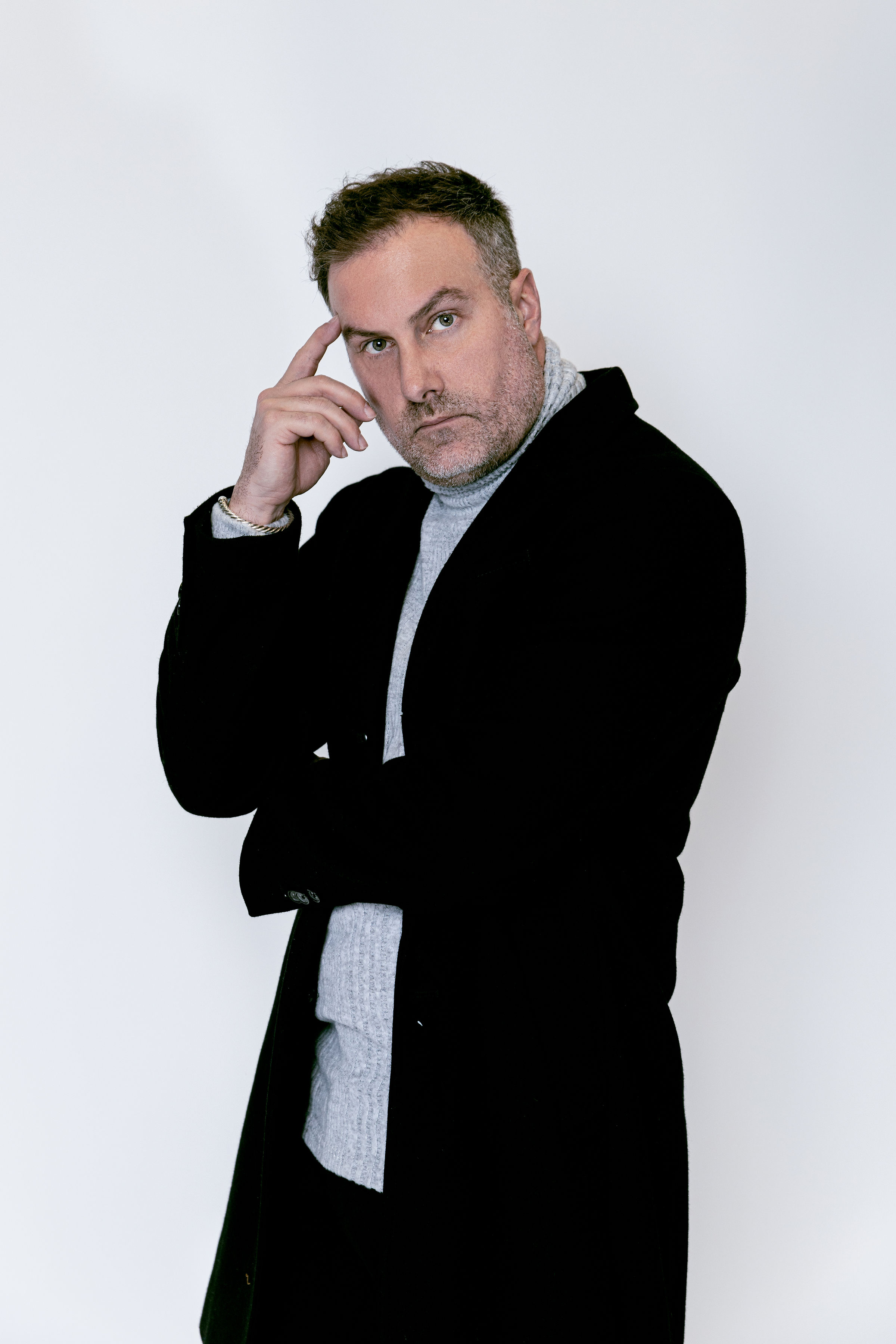
CREDITS:
MUSE: CHRIS ADAMS @chrisadams_eag
PRODUCTION: BURGERROCK MEDIA @burgerrockmedia
BURGERROCK STUDIOS @burgerrockstudios
PRODUCER & CREATIVE DIRECTION: IRMA PENUNURI @burgerrock
PHOTOGRAPHER: APRI DIAZ @aprildiazphoto
PHOTOGRAPHER ASSISTANT: SEAN MUSE @muse.sean
STYLING: EMILY ALVAREZ @emily.alvrez
PRODUCTION ASSISTANT: SOFIA RIVERA @sosofiar
KARLA GONZALEZ @karlitaa21
INTERVIEW: ROMINA MARTINEZ @rominaolivia_
related posts

Digital Co-Lab
Bring It ON!: On Mekahel

Digital Co-Lab
Difference is Her Superpower: Diipa Büller-Khosla







